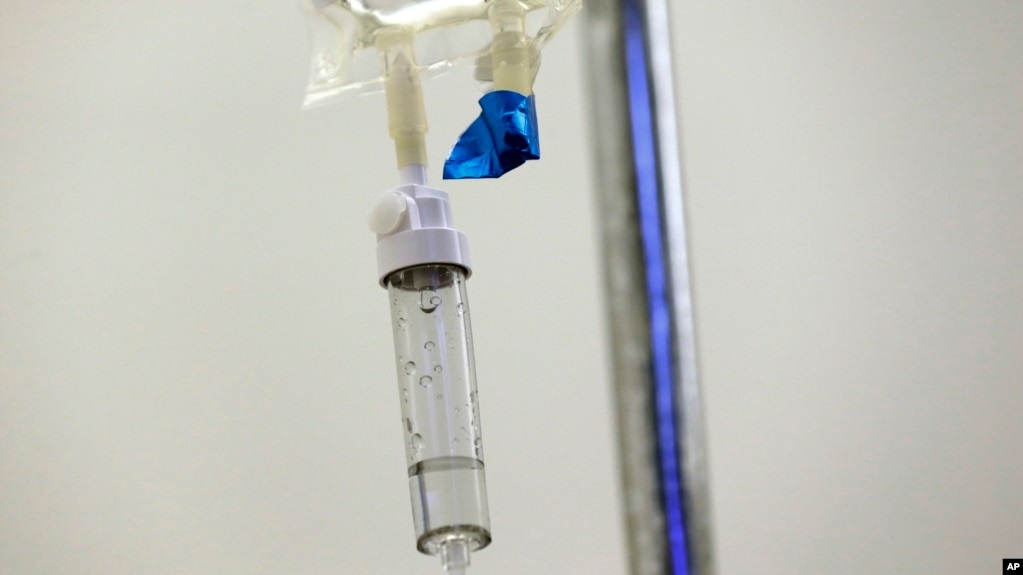AUDIO
Researchers Study Gentler Cancer Treatments

Reduced treatment for three kinds of cancer can make life easier for patients without hurting results, doctors reported recently at the world’s largest cancer conference.
The findings are part of a long-term move toward studying whether doing less surgery, chemotherapy, or radiation can help patients live longer and feel better. The latest studies involved ovarian and esophageal cancer and Hodgkin lymphoma.
Thirty years ago, cancer research was about doing more, not less. In one example, women with advanced breast cancer were pushed to the edge of death with large doses of chemotherapy and bone marrow transplants. The treatment did not work any better than chemotherapy and patients suffered.
Now, in an effort to improve cancer care, researchers are asking: “Do we need all that treatment that we have used in the past?”
It is a question, “that should be asked over and over again,” said Dr. Tatjana Kolevska of the Kaiser Permanente National Cancer Excellence Program. Kolevska was not involved in the new research.
Often, doing less works because of improved drugs.
Dr. William G. Nelson of Johns Hopkins School of Medicine was also not involved in the new research. He said, “The good news is that cancer treatment is not only becoming more effective, it’s becoming easier to tolerate and associated with less short-term and long-term complications.”
The term complications means to make a medical problem worse or to cause new medical problems to appear.
Studies showing the effects of reduced treatments were discussed recently at an American Society of Clinical Oncology conference in Chicago.
Here are a few key points:
Ovarian cancer
French researchers found that it is safe to avoid removing lymph nodes that appear healthy during surgery for advanced ovarian cancer. The study compared the results for 379 patients.
Half had their lymph nodes removed and half did not. After nine years, there was no difference in how long the patients lived.
Those with less-extreme surgery had fewer complications, such as the need for blood transfusions. The research was financed by the National Institute of Cancer in France.
Esophageal cancer
A German study looked at 438 people with a kind of cancer of the esophagus that can be treated with surgery. Half received a common treatment plan that included chemotherapy and surgery on the esophagus, the tube that carries food from the throat to the stomach. Half got another treatment that includes radiation, too. Both techniques are considered standard. Which one patients get can depends on where they get treatment.
After three years, 57 percent of those who got chemo and surgery were alive, compared to 51 percent of those who got chemo, surgery and radiation. The German Research Foundation financed the study.
Hodgkin lymphoma
A comparison of two chemotherapy treatments for advanced Hodgkin lymphoma found the gentler treatment was more effective for the blood cancer and caused fewer side effects.
After four years, the gentler chemo kept the disease in control in 94 percent of people, compared to 91 percent of those who had the more powerful treatment. The trial included 1,482 people in nine countries — Germany, Austria, Switzerland, the Netherlands, Denmark, Sweden, Norway, Australia and New Zealand.
The study was financed by Takeda Oncology, the maker of one of the drugs used in the gentler chemo that was studied.
____________________________________________
Words in This Story
chemotherapy – n. the use of chemicals to treat or control cancer
advanced – adj. far along in a course of development
tolerate – v. to experience something unpleasant without being harmed
associate – v. (often + with) to connect with, to be linked with
standard adj. regularly or widely used
https://learningenglish.voanews.com/a/researchers-study-gentler-cancer-treatments-/7642771.html